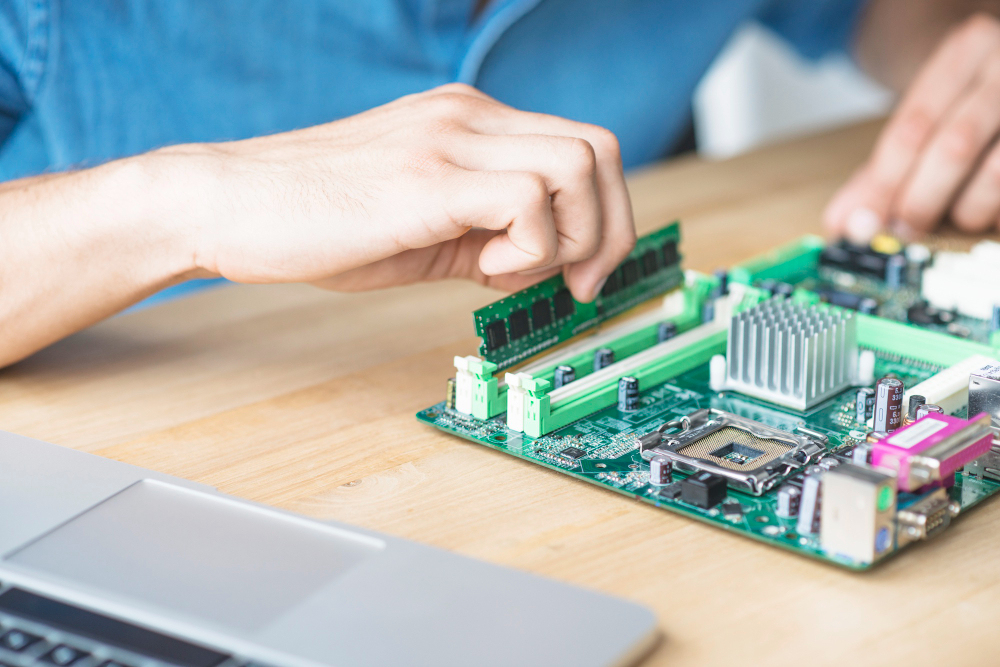Choosing the right motherboard for your computer is akin to selecting the foundation for your house. It’s the central hub where all your components connect and communicate, making it one of the most crucial decisions in the process of building a PC. This guide aims to navigate you through the intricate process of picking the perfect motherboard, ensuring compatibility, performance, and future-proofing your investment.
Understanding Motherboard Form Factors
The form factor of a motherboard dictates its size, shape, and general layout, which directly affects the size of the case you’ll need and the amount of room you have for other components. The most common form factors are ATX, MicroATX, and Mini-ITX, each offering different advantages. ATX motherboards provide ample room for expansion slots and ports but require a larger case. Conversely, Mini-ITX boards are ideal for compact builds but offer fewer slots for expansion. Choosing the right form factor is the first step to building a PC that meets your space and expansion needs.
Processor Compatibility
Your motherboard must be compatible with the processor you plan to use. This is determined by the motherboard’s socket type, which must match your CPU. For example, Intel and AMD CPUs require different sockets. Additionally, the chipset on the motherboard determines features like support for overclocking, USB ports, and SATA connections for storage. Ensure that the motherboard supports the generation and features of the processor you have in mind.
Memory Support
RAM (Random Access Memory) is a critical component of your build, and your motherboard dictates how much and what type of RAM you can install. Look for a motherboard that supports enough RAM for your needs and offers room for future upgrades. Also, consider the speed of the RAM supported by the motherboard, as higher speeds can improve overall performance for tasks like gaming and content creation.
Expansion Slots and Connectivity Options
Depending on your needs, you’ll require various expansion slots and ports. For gamers and those looking to install multiple graphics cards, having enough PCI Express slots is essential. Additionally, consider the number of USB ports, including USB 3.0 or USB Type-C, for connecting peripherals. Ethernet and Wi-Fi capabilities, as well as audio outputs, are also important considerations based on your specific requirements.
Storage Solutions and Features
Modern motherboards support a mix of storage types, including traditional SATA hard drives and faster SSDs through M.2 slots. If you’re planning on using NVMe SSDs, ensure the motherboard has the proper M.2 slots that support these speeds. Also, look into RAID support if you plan on configuring multiple drives for redundancy or increased performance.
Aesthetic Considerations
While not impacting performance directly, the aesthetics of a motherboard can be important for builders looking for a cohesive look, especially in builds with windowed cases. Many motherboards offer RGB lighting and customizable heatsinks that can match your build’s color scheme or theme. Although secondary to performance and compatibility, aesthetics can enhance the overall satisfaction with your build.
Quality and Durability
A motherboard’s build quality can affect its longevity and stability. Look for motherboards with solid capacitors, adequate cooling solutions for the VRM (Voltage Regulator Module), and robust physical construction. Reviews and manufacturer reputation can be good indicators of a motherboard’s quality and reliability over time.The Heart of Your Build
In summary, choosing the right motherboard for your computer requires careful consideration of various factors, including form factor, processor compatibility, memory support, expansion capabilities, storage options, aesthetics, and build quality. By taking the time to research and select a motherboard that meets your current needs and allows for future upgrades, you can ensure the heart of your build is strong, reliable, and ready to support all your computing activities. Remember, the best motherboard for your computer is the one that aligns with your specific requirements and goals, laying a solid foundation for a powerful and efficient system.










+ There are no comments
Add yours